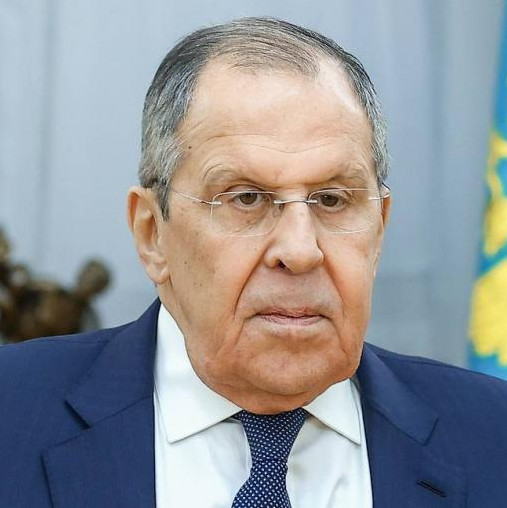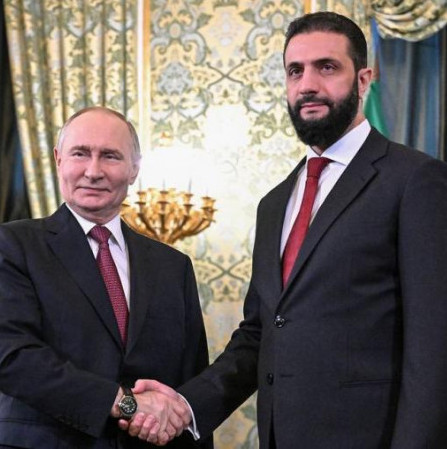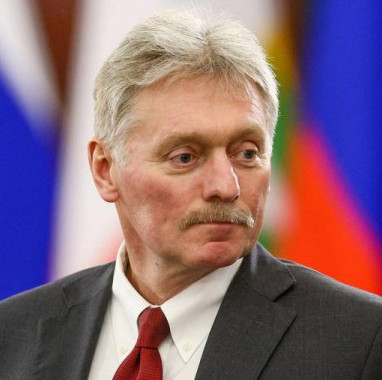The 65the anniversary of the Soviet Union's World War Two victory and the end of World War II is approaching. These are events of world historical importance.
Not only the national interests of the country were protected. By defeating Nazi Germany and its satellites, the Soviet troops saved mankind from the threat of fascist enslavement, saved the world civilization. The defeat of Nazi Germany and later on of Japanese militarism contributed to a powerful impetus to the national liberation movement, the collapse of the colonial system.
The Soviet Union made the decisive contribution to the anti-Hitler coalition's victory over fascism. Paying homage to the contribution of allies to the common victory (the second front in the Western Europe, lend-lease supplies), it should be noted that the Soviet-German front was surely the main front of World War II for 4 years. More than 600 divisions of the fascist bloc were destroyed here (the allies defeated about 180 divisions). The Wehrmacht’s total losses on the Soviet-German front amounted to 10 million people (Germany lost 13.6 million in all) and about 75% of military equipment and weapons. The line under Nazi Germany and World War II in Europe was drawn by the Soviet troops in Berlin in May 1945.
Despite setbacks in the early years of the war, the growing strength of the economy allowed the USSR in the following to produce weapons and military equipment twice as many and of higher quality than Nazi Germany did. The victory in the war was also secured by the superiority of the Soviet military science and art, especially in the strategic plan.
The moral and political unity of the Soviet people, patriotism, friendship between the peoples of the country, just aims in the war gave rise to heroism at the front, heroic labour of the people in the rear led after all to the defeat of Nazi Germany.
In many countries of the Western and Eastern Europe and in the Baltics the interpretation of the history of World War II is currently used to solve their short-term political objectives. One of the ways these countries use is disparagement of the role of the Soviet Union in the defeat of fascism and its discrediting in the eyes of the world public opinion.
Any other problem in the historical science of these countries is not studied so thoroughly and comprehensively. The work is placed on a broad footing and is headed by various government departments, which have attracted a large number of professional historians. Official publications are comprehensive and devoted to the study of military, economic and diplomatic aspects of U.S. and England involvement in the war.
Discussions on reviewing the outcomes themselves of the war are not new. But the current fights over the “military heritage” have the international political orientation.
They lead to the erosion of the concept of a “victorious power”. The countries of Eastern Europe with the support of the “all-European” institutions are adopting the thesis of “the equal responsibility of Germany and the USSR”. In response, Russia can focus on the prewar policy of appeasement of Germany pursued by France and England, or on the subject of French collaboration during the war. The result will be a blurring of lines between winners and losers in World War II.
This also raises the question of the appropriateness of maintenance of restrictions of the sovereignty of Germany. The Moscow Treaty of 1990 withdrew from Germany the remnants of its occupation status. But it retained the bans imposed by the Bonn agreement of 1952 on the holding of referendums on military-political problems, on the demand for the withdrawal of foreign troops before signing a peace treaty on the development of several components of the armed forces and taking foreign policy decisions without consultation with the victorious powers.
Over the past 20 years, Germany has created a chain of precedents that allowed it to re-establish its status of a great power without changing the Moscow Treaty. The discussion about the “equal responsibility of the USSR and Germany” will help Berlin to bring this issue to the international legal level.
Recently, there has been an increasingly stronger version in the West that Stalin that had entered into a pact with Germany, also helped the aggressors and, moreover, occupied the Baltic States and parts of Poland, Bessarabia and Northern Bukovina, took away the lands from Finland. Thus, part of the blame for the war rests on the USSR. At the same time, Western countries are praised as selfless fighters for freedom and democracy, against fascism and communism.
However, the West should understand too that counter uncomfortable questions can follow. About the “Munich Agreement”, on how it provoked the attack of the Axis satellites, how Poland together with Hitler divided Czechoslovakia, how the Baltic SS units participated in the “final solving the Jewish question”, how justified were the deliberate bombing of residential areas of German cities and the atomic bombings of Japanese cities.
The current world order operates on the basis of the institutions of the Yalta-Potsdam system. Therefore, discussions on the revision of the Second World War mean a disruption of the foundations of the whole current world system. Therefore, on September 24, 2009 Russia's President Dmitry Medvedev at the UN General Assembly declared the need to oppose any attempts to redefine the outcomes of the war enshrined in the post-war arrangements and in the UN Charter.
Not only the national interests of the country were protected. By defeating Nazi Germany and its satellites, the Soviet troops saved mankind from the threat of fascist enslavement, saved the world civilization. The defeat of Nazi Germany and later on of Japanese militarism contributed to a powerful impetus to the national liberation movement, the collapse of the colonial system.
The Soviet Union made the decisive contribution to the anti-Hitler coalition's victory over fascism. Paying homage to the contribution of allies to the common victory (the second front in the Western Europe, lend-lease supplies), it should be noted that the Soviet-German front was surely the main front of World War II for 4 years. More than 600 divisions of the fascist bloc were destroyed here (the allies defeated about 180 divisions). The Wehrmacht’s total losses on the Soviet-German front amounted to 10 million people (Germany lost 13.6 million in all) and about 75% of military equipment and weapons. The line under Nazi Germany and World War II in Europe was drawn by the Soviet troops in Berlin in May 1945.
Despite setbacks in the early years of the war, the growing strength of the economy allowed the USSR in the following to produce weapons and military equipment twice as many and of higher quality than Nazi Germany did. The victory in the war was also secured by the superiority of the Soviet military science and art, especially in the strategic plan.
The moral and political unity of the Soviet people, patriotism, friendship between the peoples of the country, just aims in the war gave rise to heroism at the front, heroic labour of the people in the rear led after all to the defeat of Nazi Germany.
In many countries of the Western and Eastern Europe and in the Baltics the interpretation of the history of World War II is currently used to solve their short-term political objectives. One of the ways these countries use is disparagement of the role of the Soviet Union in the defeat of fascism and its discrediting in the eyes of the world public opinion.
Any other problem in the historical science of these countries is not studied so thoroughly and comprehensively. The work is placed on a broad footing and is headed by various government departments, which have attracted a large number of professional historians. Official publications are comprehensive and devoted to the study of military, economic and diplomatic aspects of U.S. and England involvement in the war.
Discussions on reviewing the outcomes themselves of the war are not new. But the current fights over the “military heritage” have the international political orientation.
They lead to the erosion of the concept of a “victorious power”. The countries of Eastern Europe with the support of the “all-European” institutions are adopting the thesis of “the equal responsibility of Germany and the USSR”. In response, Russia can focus on the prewar policy of appeasement of Germany pursued by France and England, or on the subject of French collaboration during the war. The result will be a blurring of lines between winners and losers in World War II.
This also raises the question of the appropriateness of maintenance of restrictions of the sovereignty of Germany. The Moscow Treaty of 1990 withdrew from Germany the remnants of its occupation status. But it retained the bans imposed by the Bonn agreement of 1952 on the holding of referendums on military-political problems, on the demand for the withdrawal of foreign troops before signing a peace treaty on the development of several components of the armed forces and taking foreign policy decisions without consultation with the victorious powers.
Over the past 20 years, Germany has created a chain of precedents that allowed it to re-establish its status of a great power without changing the Moscow Treaty. The discussion about the “equal responsibility of the USSR and Germany” will help Berlin to bring this issue to the international legal level.
Recently, there has been an increasingly stronger version in the West that Stalin that had entered into a pact with Germany, also helped the aggressors and, moreover, occupied the Baltic States and parts of Poland, Bessarabia and Northern Bukovina, took away the lands from Finland. Thus, part of the blame for the war rests on the USSR. At the same time, Western countries are praised as selfless fighters for freedom and democracy, against fascism and communism.
However, the West should understand too that counter uncomfortable questions can follow. About the “Munich Agreement”, on how it provoked the attack of the Axis satellites, how Poland together with Hitler divided Czechoslovakia, how the Baltic SS units participated in the “final solving the Jewish question”, how justified were the deliberate bombing of residential areas of German cities and the atomic bombings of Japanese cities.
The current world order operates on the basis of the institutions of the Yalta-Potsdam system. Therefore, discussions on the revision of the Second World War mean a disruption of the foundations of the whole current world system. Therefore, on September 24, 2009 Russia's President Dmitry Medvedev at the UN General Assembly declared the need to oppose any attempts to redefine the outcomes of the war enshrined in the post-war arrangements and in the UN Charter.



